Shooting the Messenger? Shipping Carries the Can as Investors Shun Coal
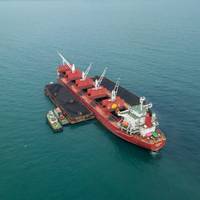
Shipping companies that transport the world's coal are in the crosshairs of some financial backers who are cleaning up their businesses in the absence of a truly global drive by nations to renounce the dirtiest fossil fuel.In a sign of investors taking the initiative, six European firms collectively representing over 5% of the estimated annual $16 billion capital financing requirements of the dry bulk industry told Reuters they were either reducing their exposure to vessels that…
Decarbonization: 34 Maritime CEOs Call for Action
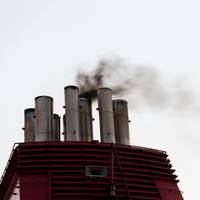
A who’s who list of maritime industry executives have signed on to voice their support for a zero-carbon future in shipping.The not-for-profit foundation the Global Maritime Forum brought together a group of 34 CEOs and industry leaders from across the global maritime sector to sign a call for action and lead the industry in a transition toward decarbonization.To achieve this, these leaders believe the maritime industry needs to accelerate both technological and business model innovation…
Financiers Turning the Tide on Shipbreaking Practices
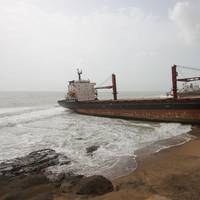
The shipping industry has long been criticised by campaigners for allowing vessels to be broken up on beaches, endangering workers and polluting the sea and sand. Now, it is being called to account from a quarter that may have a bit more clout - its financial backers. Norway's $1 trillion Oil Fund, a leader in ethical investing, in February sold its stake in four firms because they scrap on the beach. Three of the firms excluded by Norway's fund - Taiwan's Evergreen Marine, Precious Shipping and Thoresen Thai Agencies (TTA) of Thailand - say they have been unfairly singled out.
Global Shipping Feels Fallout from Maersk Cyber Attack
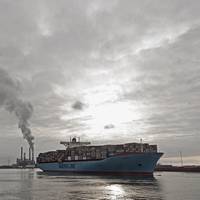
Global shipping is still feeling the effects of a cyber attack that hit A.P. Moller-Maersk two days ago, showing the scale of the damage a computer virus can unleash on the technology dependent and inter-connected industry. About 90 percent of world trade is transported by sea, with ships and ports acting as the arteries of the global economy. Ports increasingly rely on communications systems to keep operations running smoothly, and any IT glitches can create major disruptions for complex logistic supply chains. The cyber attack was among the biggest-ever disruptions to hit global shipping.
Brexit: What Next for Shipping Markets?
For many in shipping, the Brexit was unexpected. Many believe that Brexit’s impact on the shipping industry will be more or less neutral. The UK Chamber of Shipping remained neutral on the question of Britain's departure during the runup to the vote. It issued a statement emphasizing the industry's importance in all events. "We are still an island nation that has to make its way in the world through buying and selling, and the shipping industry is here for that purpose . . . shipping moves 95 percent of the UK's international trade and we don't see that changing," the organization said. The chamber highlighted a series of key policy areas that will need attention from the government before the UK leaves.
Indonesia: Local Piracy could lead to 'new Somalia'
Indonesia, Malaysia, Philippines ministers to meet in Jakarta as up to 18 Indonesians, Malaysians held captive in Philippines. Indonesia fears piracy on a busy shipping route along its maritime border with the Philippines could hit levels seen in Somalia unless security is tightened, its chief security minister said on Thursday, following a spate of kidnappings. The route lies on major shipping arteries that analysts say carry $40 billion worth of cargo each year. It is taken by fully laden supertankers from the Indian Ocean that cannot use the crowded Malacca Strait. For the first time, concerns over rising maritime attacks by suspected Islamist militants are disrupting coal trade between the Southeast Asian neighbours…
Shipping Unscathed as China Flights Raise South China Sea Tension
China's growing military presence in the South China Sea has drawn warnings from the United States that Beijing is seeking to exert control over one of the world's most important sea lanes, but so far the shipping industry seems less concerned. Beijing has been increasingly assertive in staking its claim to almost the whole of the sea, though which trillions of dollars of trade passes each year. This month China landed its first test flights on a new 3,000 metre (10,000 ft) runway it has built on a reef in the Spratly Islands, drawing protests from Vietnam and the Philippines which have overlapping claims in the area. Despite the diplomatic tensions, merchant shipping says operations are, as yet, unaffected.
Survival of Fittest for 2016 Commodity Shippers
Downturn in dry freight market started in 2008; more ships expected to hit the water next year. Shipping companies that transport commodities such as coal, iron ore and grain face a painful year ahead, with only the strongest expected to weather a deepening crisis caused by tepid demand and a surplus of vessels for hire. The predicament facing firms that ship commodities in large unpackaged amounts - known as dry bulk - is partly the result of slower coal and iron ore demand from leading global importer China in the second half of 2015. The Baltic Exchange's main sea freight index - which tracks rates for ships carrying dry bulk commodities - plunged to an all-time low this month.
Dry Bulk Shipping Record Low a Warning for Global Economy
A slump in dry bulk shipping is set to worsen as the meltdown in global commodities and too many ships free for hire rock the sector used by investors to gauge the health of world trade. Slower coal and iron ore demand from China - the world's biggest industrial importer - have battered the dry bulk sector, already in the midst of its worst ever downturns that is expected to extend well into next year. This week the Baltic Exchange's main sea freight index , which tracks rates for ships carrying dry bulk commodities and seen by investors as a forward-looking indicator of global industrial activity, plunged to an all-time low. A slump in oil and other commodity prices, due to slowing Chinese demand, has widely been seen as one of the reasons for U.S.
Yemen War Risk Could Strangle Sea Trade Routes
With Middle East giants Saudi Arabia and Iran squaring up on opposing sides in the Yemen war, the dangers to vital oil tanker and goods voyages are growing daily. Millions of barrels of oil pass through the Bab el-Mandeb and Strait of Hormuz everyday to Europe, the United States and Asia - waterways which pass along the coasts of Yemen and Iran respectively. Insurance costs for shippers are likely to jump. Last week Iran released Marshall-Islands container ship Maersk Tigris and its crew which were seized in the Strait of Hormuz. This prompted the United States to send vessels to temporarily accompany U.S. flagged ships through the strait. Iranian patrol boats had shadowed a separate container ship earlier last month.
Shippers Eye Trade Boost from El Nino Threat
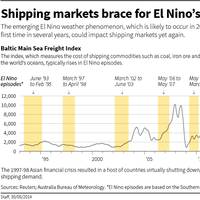
A potential El Nino weather phenomenon, which could wreak havoc on global crops, is set to disrupt shipping patterns and raise freight costs, leaving suppliers and importers to cover their food needs from longer-haul destinations. El Nino, a warming of sea-surface temperatures in the Pacific, can trigger floods and drought in different regions, hitting production of key foods such as rice, wheat and sugar. Weather forecasters are increasingly predicting it will return in 2014 for the first time in five years.
Industry Leaders to Meet in Dubai
With a weakening dollar, predictions oil could hit $100 a barrel, and a boom in multi-billion dollar refinery construction, finance and shipping leaders will be meeting in Dubai this November to assess the impact on the regional and global maritime industries. The Middle East shipping industry is dominated by the tanker trade. Bookings for supertankers sailing from the Middle East to Asia account for 47% of global demand for the carriers, compared with shipments to the US and Caribbean, the second-biggest market, which accounts for 14% of demand. The balance of supply and demand, in the tanker sector in the Middle East, will be part of a special Charterers Forum that will take place during the Middle East Money & Ships 2007 conference, from 4-5 November, at Mina a'Salam, Madinat Jumeirah.
Financial Conundrum For Precious Shipping
Khalid Hashim, managing director of Precious Shipping Plc, says his hands are tied. Thailand's largest shipping line, specializing in bulk shipping, mainly of commodities such as rice and sugar, is unwilling to increase its equity in a market it says undervalues its shares. And it is unable to seek more debt from a Thai banking system badly burned during the Asian financial crisis of 1997/98. So much cash flow goes on servicing debt it assumed before the crisis that it can scarcely afford to replace its 35 ships as they age. "If we don't expand the business, if we don't take any steps to get out of the restructuring cash flow trap that we're in..., then in four years' time we'll be debt-free but down to 17 ships," Hashim said.





